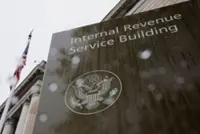AS the Covid-19 virus reached pandemic proportions, national borders closures and country lockdowns led to diminished consumer demand and a collapse of industrial production and service industries. The crisis led to financial distress among small and medium enterprises (SMEs) and sparked massive layoffs. In matter of weeks, unemployment rose to double digits.
Large companies were not immune to the pandemic either (no pun intended). While Boeing and major US airlines pleaded for more than US$100bil in federal funding to stay afloat, several well-known companies including Hertz, Thai Airways, and JCPenney filed for bankruptcy.





